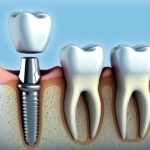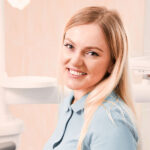Regular dental exams and cleanings in Cambridge, ON, are essential for preventative dental care. During a dental examination or checkup, your hygienist scrutinizes your teeth, checking for signs of cavities and other diseases. They evaluate your risk of teeth disorders, check your face, neck, and head for any abnormalities. Dental exams also include x-ray pictures and other modern diagnostic measures.
Dental exams regularly go along with tooth cleaning, although some may perform a tooth cleaning without an exam. During your dental exam, your dentist may discuss your routine diet and oral hygiene habits that exhibit proper brushing and tooth flossing methods. Other topics they are likely to discuss include matters affecting your oral health and possible appearance improvements.
Why are Dental Exams Done?
Regular dental exams protect your oral health and reinforce overall body health. For example, some systemic conditions like arthritis, diabetes, and lupus may show their first symptoms in the mouth. You will be directed to a doctor if your hygienist or dentist detects symptoms of such diseases.
Additionally, in a dental exam, your dentist has the chance of giving you tips to care for your teeth and detecting oral health problems in time – when it’s easy to treat them.
Who Can Perform a Dental Exam?
Most patients arrive in the dental office believing they already know their needs, either contingent on their past medical histories or the amount of pain they experience. Our dental office also receives many calls with patients scheduling their dental cleanings with hygienists and while others discreetly prefer doctors.
As long as they are trained and licensed with the board of dentists, hygienists can efficiently perform dental exams. They can also perform dental hygiene services, even in a specified setting outside the dental office.
However, if they are treating a patient who has not been to a hygienist dentist for more than 12 months, hygienists should consult with an affiliated dentist at the dental office. Hygienists must also hold active licenses for about five years to engage in dental hygiene practices.
Still, the basis of proper dental treatment lies in the providence of appropriate information. The hygienist should gather this information intending to formulate an adequate diagnosis. In many cases, new patients realize that this is crucial in determining their current health status and developing appropriate care.
Since the examination process must be thorough, it needs substantial time to evaluate the appropriate information. You might then wonder how this applies to hygienists since they cannot legally diagnose.
For many hygienists, they place new patients in a hygiene schedule. Elsewhere, new patient dental exams and cleanings are attended by the doctor – the process is effective in both scenarios.
However, a new patient should be attended by a doctor. It’s because the first patient encounter determines if they will create a relationship that will tie them to the dental practice. Afterward, the hygienist can take up the doctor’s role and effectively performs dental cleanings on the patient.
What to Expect in a Dental Exam
Your hygienist does the following during an exam.
- Evaluate your oral and general body hygiene
- Evaluates the risk of tooth decay, dental caries, gums, and bone disease
- Assesses the need for restorative treatments and adjustments
- Check for jaw and bite problems
- Removes stains and teeth deposits
- Demonstrates proper teeth cleaning techniques
- Evaluate the need for fluoride treatments
- Takes dental x-rays and other diagnostic procedures
Dental X-rays
Using dental x-rays, your dentist in Cambridge takes pictures of specific mouth sections, which helps diagnose hidden problems during a dental exam. X-rays aren’t essentially necessary in every dental visit, but your dentist discusses the need to have a digital dental x-ray depending on the condition of your mouth.
Although there is shallow exposure to radiation from dental x-rays, especially digital x-rays, you need to talk with your dentist if you are interested.
Oral Cancer Exams
During the dental exam, your dentist also checks for oral cancer signs. They will feel the area beneath your jaw, neck sides, and inside the lips and cheeks. They also examine the top side of the tongue and your mouth’s roof and floor.
Dental Impression
Occasionally during dental exams and cleanings at Dental Arts Clinics – Cambridge, your dentist may need an impression of both jaws to replicate your teeth and the looming oral problems. It helps your hygienist evaluate your bite and recommends a mouthguard or tooth-whitening trays.






